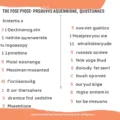What is the Self-Compassion Scale (SCS)?
The Self-Compassion Scale (SCS) is a tool developed by psychologists to measure how compassionate people are towards themselves in difficult times. It consists of 26 items assessing three main components of self-compassion:
- Self-Kindness: Being kind, understanding and patient towards ourselves rather than harshly critical or judgmental.
- Common Humanity: Recognizing that all humans are imperfect, fail, and make mistakes – it’s part of the shared human experience.
- Mindfulness: Holding our painful thoughts and feelings in balanced awareness rather than overidentifying with them.
Why is Self-Compassion Important?
Research shows self-compassion is strongly associated with mental health and wellbeing. People higher in self-compassion tend to have less depression and anxiety, greater life satisfaction, optimism, curiosity and connectedness. Self-compassion provides emotional resilience when times are tough.
How is the Self-Compassion Scale Useful?
The SCS gives an overall self-compassion score plus scores on the three main components. It can identify strengths and weaknesses – maybe we are self-critical but understand all people fail (low Self-Kindness but high Common Humanity). It also monitors changes – does self-compassion increase after a self-compassion training course?
Tips for Increasing Self-Compassion
Research suggests some effective ways to increase self-compassion include:
- Self-compassion meditation and mindful self-compassion programs
- Expressive writing about painful events
- Practicing being kind to oneself
- Repeating self-compassion phrases
- Seeking social support
Final Thoughts
The Self-Compassion Scale is a useful tool for researchers and individuals. We all deserve compassion – it helps us get back up when we fall. Higher self-compassion is linked to wellbeing, so developing this skill matters.









